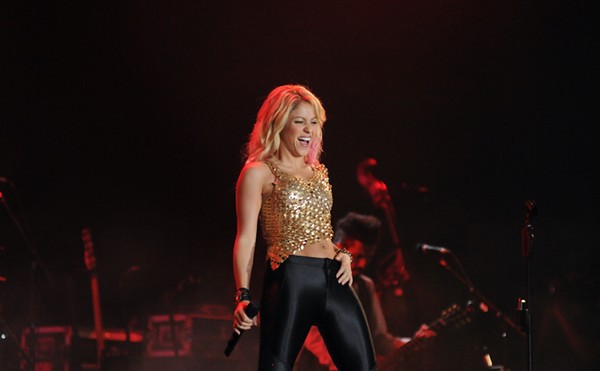Last week’s announcement of the 2007 Oscar nominees confirmed what the observant have long known: The Best Song category is the cesspool of the Academy Awards. Three songs from Enchanted(!)(?), a pseudo-inspirational hunk of slop from August Rush, and a pleasant but inconsequential Cat-Stevens-ish ditty from Once. Is that the best we can do?
Part of the problem is what Rolling Stone film critic Peter Travers calls the Academy’s stupidity about rock music. But the absence of anything resembling real quality in this category goes much deeper.
Over the first three decades of the Academy Awards, best-song choices were endless because most great pop tunes were introduced to audiences either via the stage or screen. A quick scan of nominees from 1934-1963 reads like a major volume of the Great American Songbook: “Cheek to Cheek,” “The Way You Look Tonight,” “They Can’t Take That Away From Me,” “Over the Rainbow,” “Pennies From Heaven, “White Christmas,” “Baby, It’s Cold Outside,” “All the Way,” etc. By the late-’60s, however, with self-contained rock bands dominating the music scene, screen musicals flopping like beached whales, and Easy Rider establishing a new template for use of music (cherry-picking contemporary rock songs), most songwriters stopped wasting their time on the medium.
From that point on, the Academy seemed to lose its musical equilibrium. They snubbed Simon & Garfunkel’s era-defining “Mrs. Robinson” in favor of Dr. Dolittle’s “Talk to the Animals.” They ignored the Bee Gees’ Saturday Night Fever and handed the Oscar to “You Light Up My Life.” They shunned Prince’s “When Doves Cry” to make room for masterpieces such as “Ghostbusters” and “Footloose.”
The pattern became familiar: Throw a nomination bone to Randy Newman, go giddy with appreciation whenever Sting or Paul McCartney deigns to spend five minutes cranking out a film tune, and otherwise honor one of those crappy ballads that takes five people to write, runs over the closing credits, and is forgotten before you had time to remember it. When Phil Collins won in 1999 for Tarzan’s “You’ll Be in My Heart” (how often have you listened to that song lately?), it was obvious that the Academy needed to shut down this category, once and for all. After all, when Collins or Peter Cetera gets an Oscar nomination, aren’t we all diminished in some way?
This year, the Academy could’ve taken the road less traveled and honored Walk Hard’s “Dr. Mr. President” (if only to hear John C. Reilly croon on the Oscar telecast: “I sing for the Injun/all hopped up on booze”), Sondre Lerche’s Dan In Real Life, or something from Eddie Vedder’s Into the Wild. See what you’re doing to me, Academy? You’re making me recommend Eddie Vedder. Please, stop the madness!
________________________________________________
When Shelby Lynne released her 2000 pop-soul breakthrough album, I Am Shelby Lynne, the instant reference point for most critics was Dusty Springfield’s equally elegant/
elegiac Dusty in Memphis. With Just A Little Lovin’, Lynne pays back the debt in full.
Lynne began her career two decades ago as a big-voiced Nashville wild child, but these days she’s so sure of her technique that she only deploys it rarely, and with great tactical restraint. At times on this album, as on the inherently melodramatic “You Don’t Have to Say You Love Me,” you find yourself wishing Lynne would unleash a bit more of that celebrated vocal firepower, but she’s going for intimacy here, and she generally dials things down from the lush, often bombastic arrangements that characterized Springfield’s recording career.
Working with a lean, supple cocktail-jazz quartet and recording with no overdubs, Lynne takes “I Only Want to Be With You” from its brassy, mid-’60s ebullience into a muted, mid-tempo wariness that some might deride as middlebrow Starbucks fare, but is more accurately a model of mature pop-song interpretation. The disc’s best moment, Randy Newman’s “I Don’t Want to Hear It Anymore,” particularly benefits from its stripped-down sound, with its tale of hearbreaking gossip heard through paper-thin walls all the more palpable.
Lynne also shows that she knows when to stick to the Springfield template. Her version of “The Look of Love” falls into its familiar pocket and it remains the sexiest song in the English language. If this album prompts some people to search out Dusty’s original, that’s a great thing, but if they choose to stick with Lynne’s interpretation, they’re certainly not losing out.

















